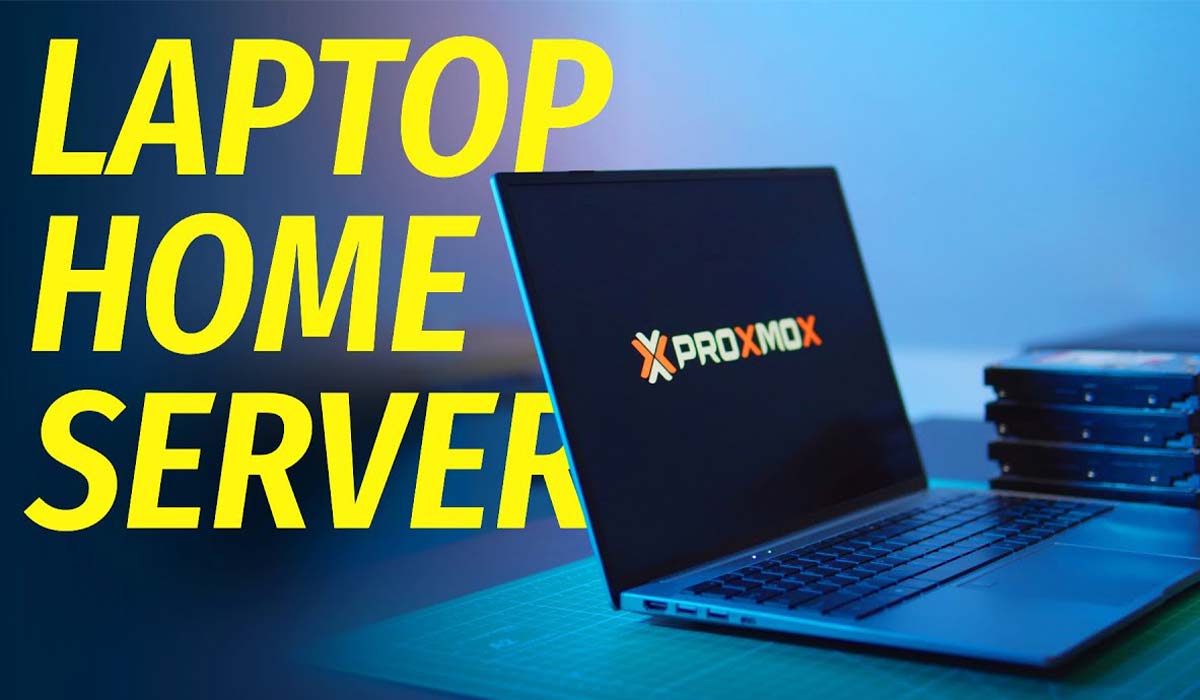Can I Use A Laptop as a Home Server? How to Turn an Old Laptop Into a Powerful and Affordable Server
Home servers permit us to have handy get right of entry to to our files, run services, and greater from anywhere. However, dedicated server hardware can be an expensive investment.
As an inexpensive opportunity, it is possible to repurpose an older computer into a successful domestic server.
On this manual, we will discover the blessings of using a computer as a domestic server, how to pick out a appropriate tool, and steps for setup.
Identifying the Right Laptop as a Home Server
While choosing a pc to use as a server, there are some key hardware specs to take note of. While less powerful devices can work for basic tasks, aiming for these recommended specs will ensure good performance:
- Processor: An Intel i5 or i7 processor from the last 5 years is preferred. The more processing cores the better for handling multiple tasks simultaneously.
- RAM: 8GB RAM minimum, 16GB or more is better for running multiple services.
- Storage: 256GB SSD for the operating system, plus additional external storage for your files and services.
- Ports: Gigabit Ethernet port required for stable wired internet connectivity. Extra USB ports are useful.
- Graphics: An integrated Intel GPU is sufficient for most server uses, though an Nvidia GPU could allow using the laptop for Plex transcoding.
Other factors to consider include trying to find a laptop with less emphasis on lightweight portability and more focus on performance and ventilation to avoid overheating. Devices released in the last few years will also have longer support for updates.
An affordable option is to scout used or previous-generation laptops from manufacturers like Dell, HP, or Lenovo. Outlet and auction sites often have business-grade devices for personal use at lower prices. Just be sure to verify hardware specifications and test functionality before purchasing.
Setting Up Your Laptop as a Home Server
Once you have a suitable laptop, it’s time to prepare it for its new role as your always-on home server. Here are the basic steps:
- Download and install a server-oriented operating system like Ubuntu Server LTS or Windows Server LTSC. These are more lightweight and stable than desktop variants.
- Immediately run any available OS and system updates to ensure all security patches are applied. Set your laptop to always automatically install critical and recommended updates going forward.
- Install and configure remote access software like OpenSSH on Linux or Remote Desktop on Windows. This allows managing your server remotely.
- Configure your network, firewall, ports, and other security settings. Enable things like Fail2Ban to block brute force login attempts.
- Set power options to never sleep or hibernate so your server remains accessible at all times when plugged in.
With the basic setup complete, your laptop is now ready to begin hosting services and acting as your versatile home server. Keep reading for popular uses.
Common Uses for a Laptop as a Home Server
With setup finished, here are some common and useful services your new laptop home server can provide:
File Storage and Backup
Self-host backup and sync services like NextCloud or ownCloud for convenient storage of documents, photos and videos. Automated backup tasks ensure your important files are always safe.
Personal Website or Blog
You can use the server capability to run blogging platforms like WordPress and host your own professional-looking website.
Home Automation
Centralize control of smart home devices and monitor security cameras through a Home Assistant server.
Media Streaming
Stream your personal video, music and photo library to any device on your home network or remotely with Plex or Emby media servers.
Gaming
Host game servers for Minecraft, ARK: Survival Evolved, Valheim and more so you and friends can game together anytime.
There are endless possibilities for leveraging your laptop’s power as a capable home server. With some software, it becomes the center of your connected smart home.
Potential Drawbacks to Consider Laptop as a Home Server
While a repurposed laptop holds many advantages, there are a few downsides to be aware of:
- Hardware capabilities may be lower than a similarly priced desktop-class mini PC meant for serving duties. Extra processing or RAM could be required for very resource-intensive tasks.
- Laptop power supplies use more electricity than ultra-low-power server boards, increasing energy costs over time versus a dedicated server.
- Operating system noise from fans may be noticeable depending on your laptop model if cooling is inadequate in a stationary position.
- Physical size is less versatile than a small mini server case if space is tight, though a VESA laptop mount solves this issue.
With the right expectations, these minor limitations are often outweighed by cost savings and performance of a laptop home server. Monitoring resource usage helps avoid potential future upgrades too.
Conclusion about Use A Laptop as a Home Server
In conclusion, with some basic setup almost any older laptop can be transformed into a powerful and cost-effective home server. From anywhere in the world, you gain access to file storage and backups, personal websites and more.
With the right laptop and software configuration, it provides a versatile, always-on solution for your smart home infrastructure.
With some scouting, many find a refurbished business laptop meets recommended specifications for under $200, paying for itself within a year versus commercial hosting fees alone.
By turning an existing device into your own server, you gain control over your data and unlock new capabilities – all while saving money in the process.


